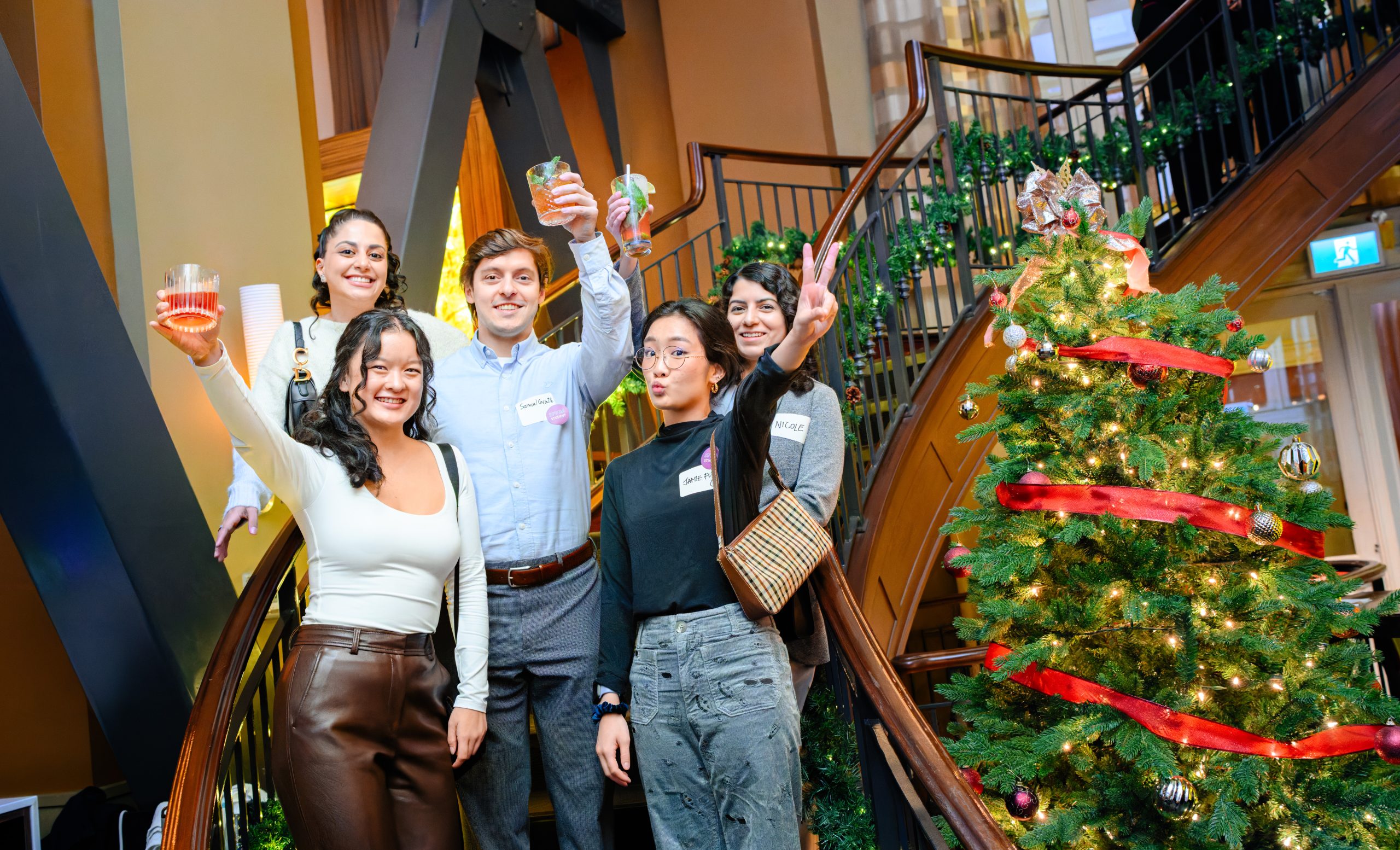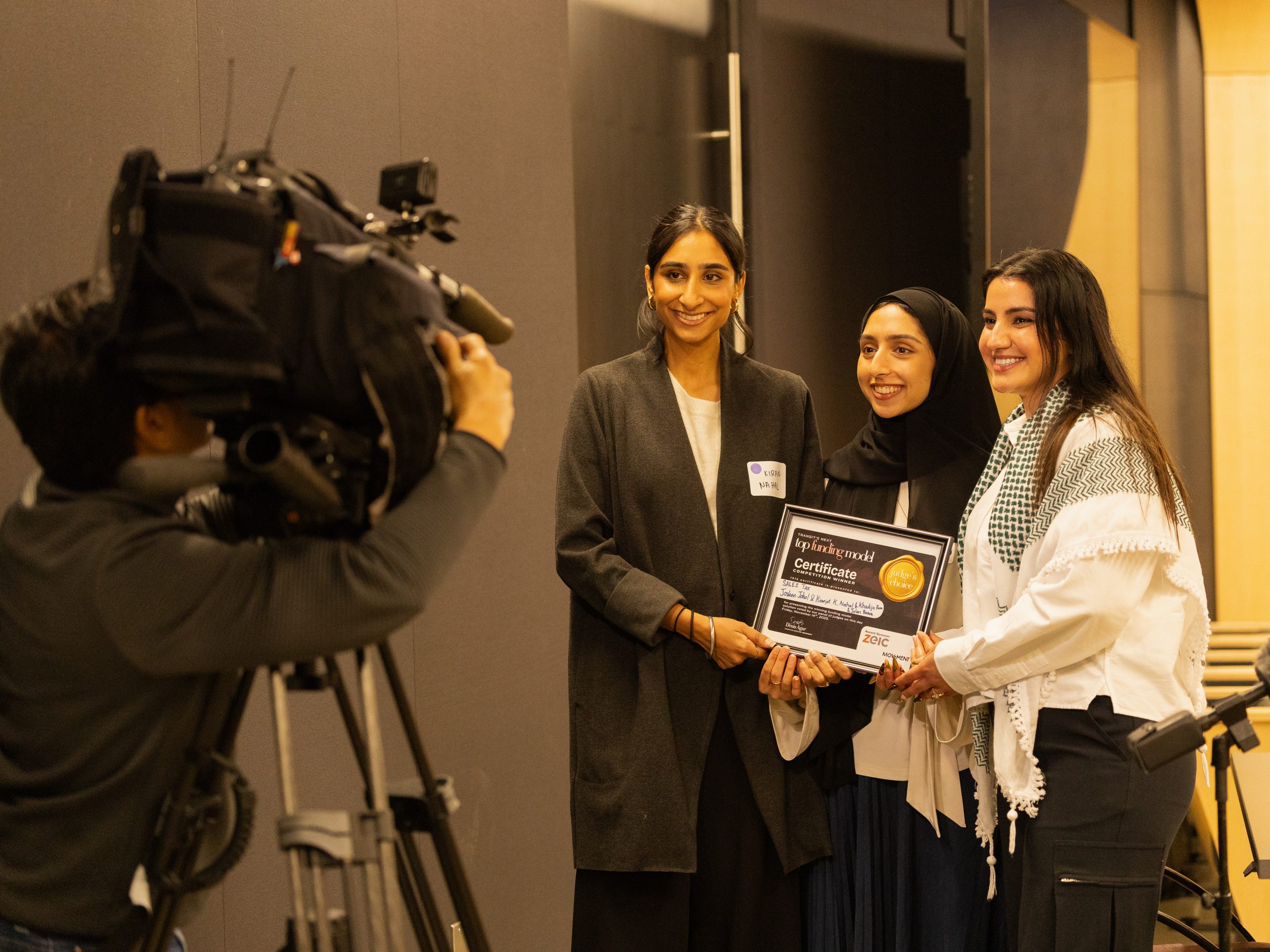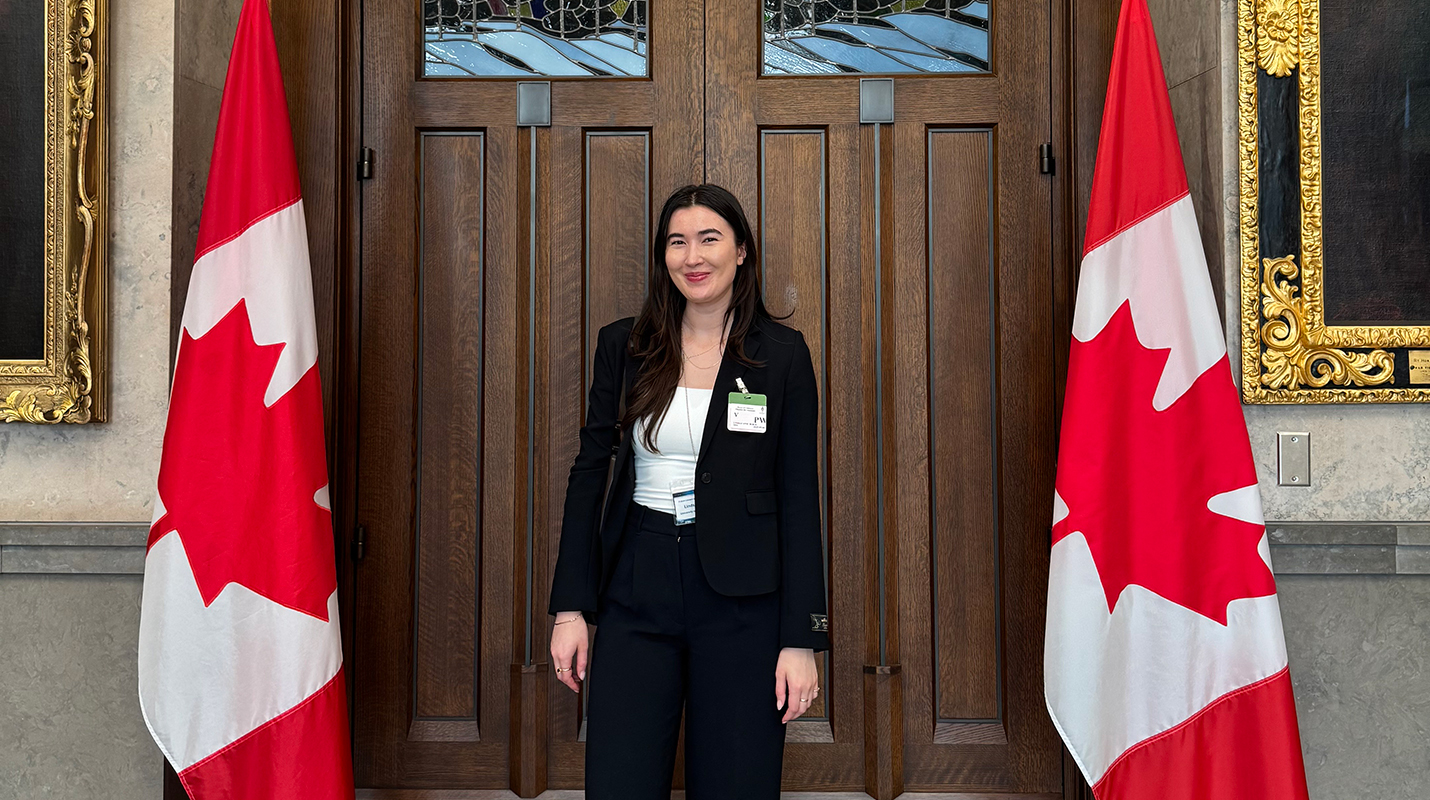

“The experience of the Future Leaders in Defence Forum goes far beyond a three-day event—it’s something I’ll carry forward in both thought and practice.”
The Future Leaders in Defence Forum is a unique program that allows select graduate students from across Canada access to spaces typically reserved for senior defence officials, policy makers, and members of the Canadian Armed Forces. This year, MPPGA student Lindsay Burlie represented UBC’s School of Public Policy and Global Affairs at this gathering that offered a rare window into the inner workings of Canadian defence policy—and the people behind it. She shares her story here:
Some experiences stay with you long after they end—and the Future Leaders in Defence Forum is one I’ll carry with me for many years to come. As one of ten master’s students from across Canada selected to attend, I represented UBC as the only participant from British Columbia. Over two days, we engaged in high-level briefings on pressing topics like Arctic security, Canada’s evolving threat environment, and active military operations. Despite their demanding roles, senior public servants took the time to speak with us candidly under Chatham House rules. Though the content was unclassified, the briefings were rich with insight and complexity, often thrilling, and sparked thoughtful, in-depth discussions. We also met with staff from the Minister’s Office and Treasury Board Secretariat, gaining a clearer understanding of how defence policy is shaped and how essential cross-departmental collaboration is in making it work.
Much of the advice from our SPPGA professors echoed throughout the forum—especially the importance of collaboration, a can-do attitude, and strong communication skills. Public service requires the ability to clearly synthesize and convey complex ideas without jargon. I felt right at home, as the briefings were delivered in language I completely understood—direct, accessible, and focused on real solutions and the path forward.
The networking dinner on our first full day was a highlight. It gave us the chance to connect with people from various branches and levels of the department in a more informal setting. I was struck by the camaraderie and shared purpose in the room—conversations flowed with openness, honesty, and humor, and it was clear how deeply everyone cared about their work. The experience reinforced my impression of Department of National Defence as not only an intellectually stimulating environment but also one grounded in strong human connections. It was an unforgettable evening—how often do you get to sit beside the Commander of the Royal Canadian Navy and ask for pirate stories (which he loves to tell) over dinner? That moment perfectly captured the mix of insight and approachability that defined the forum.
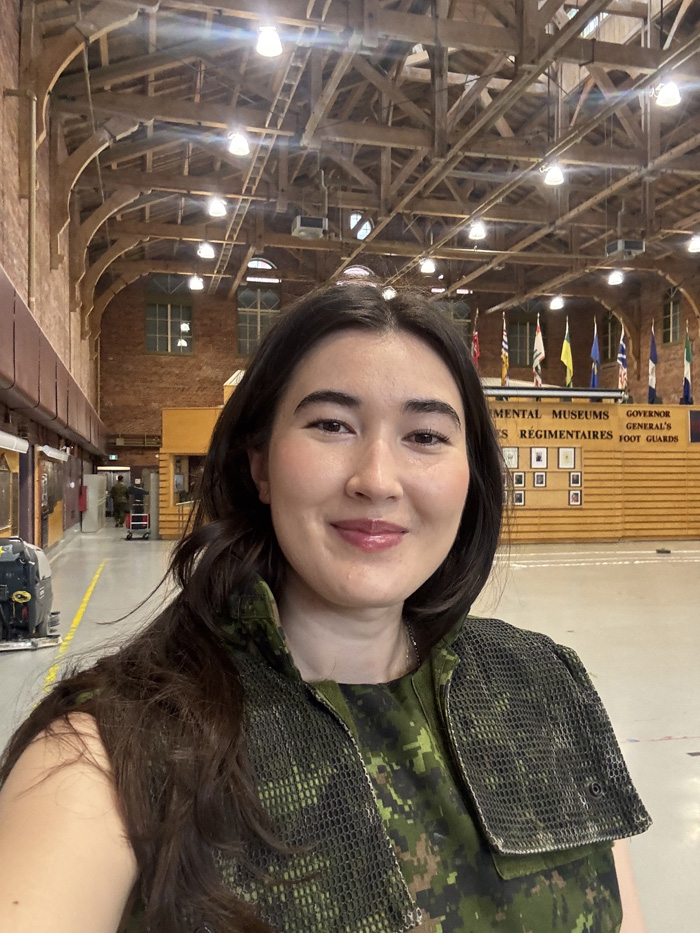
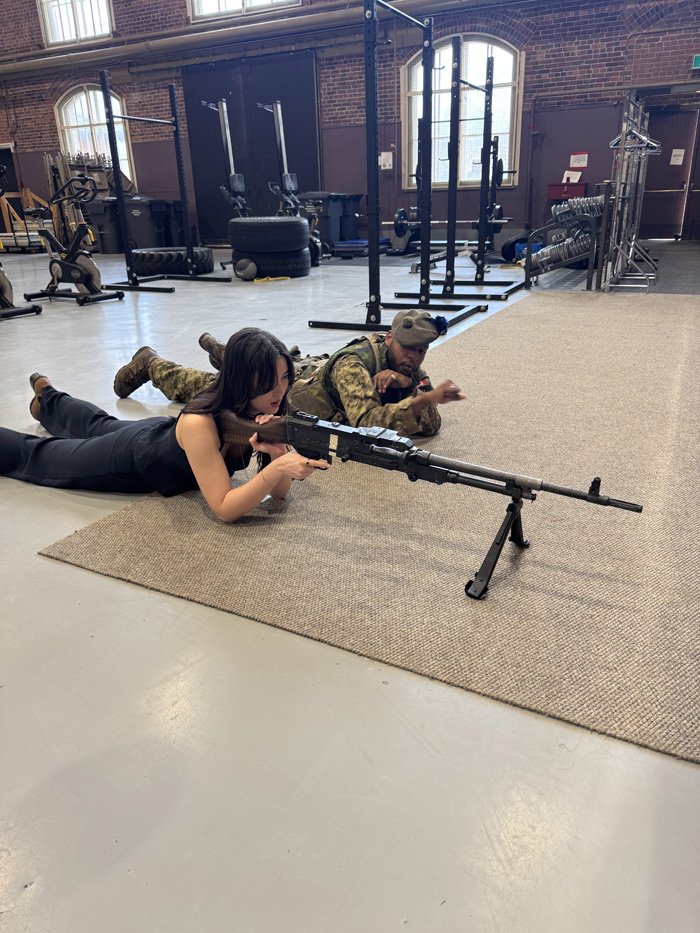
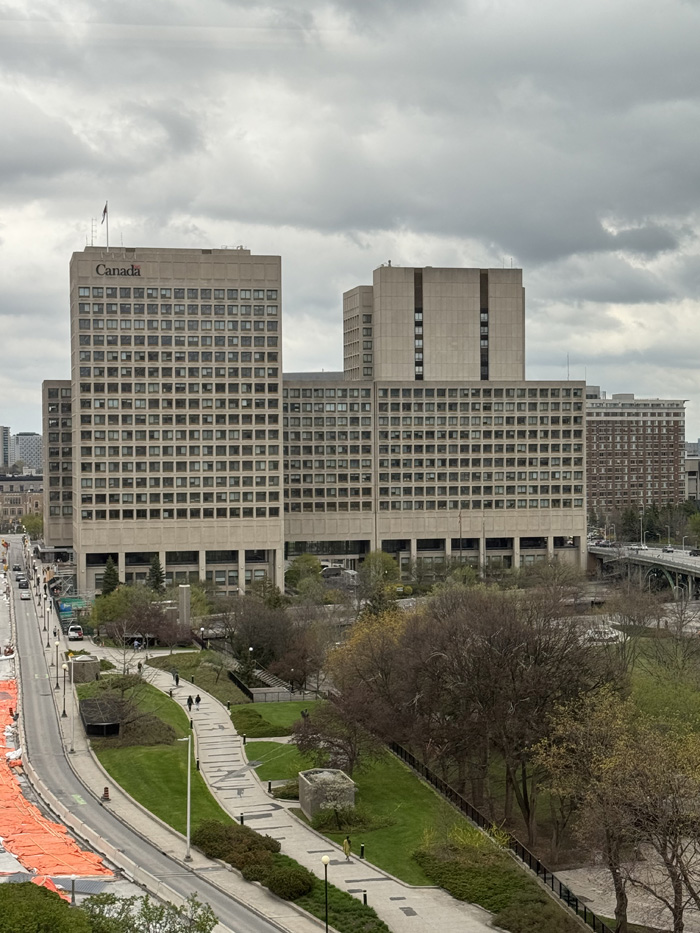

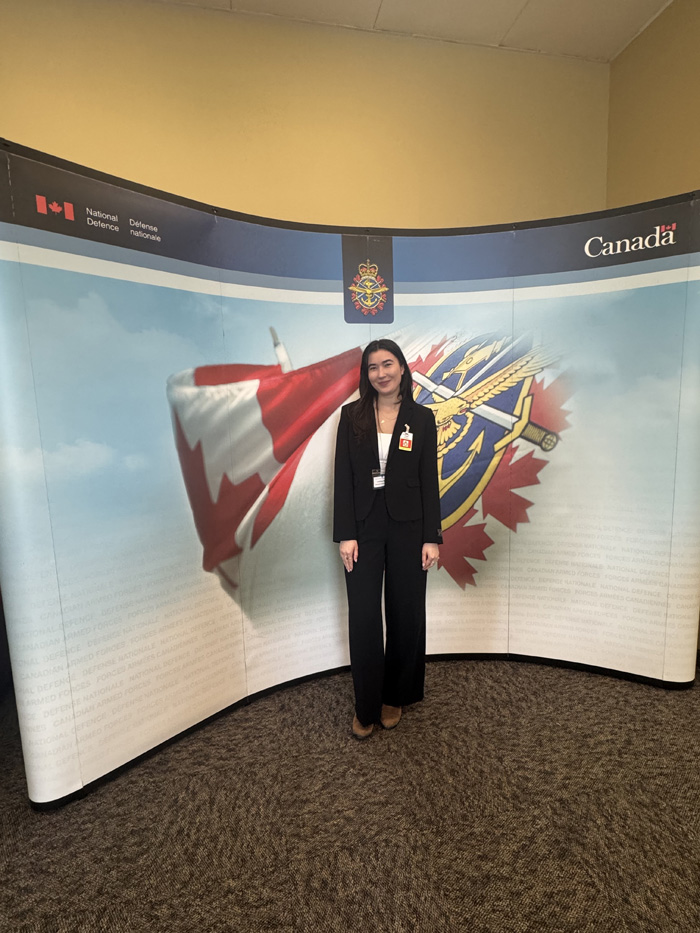

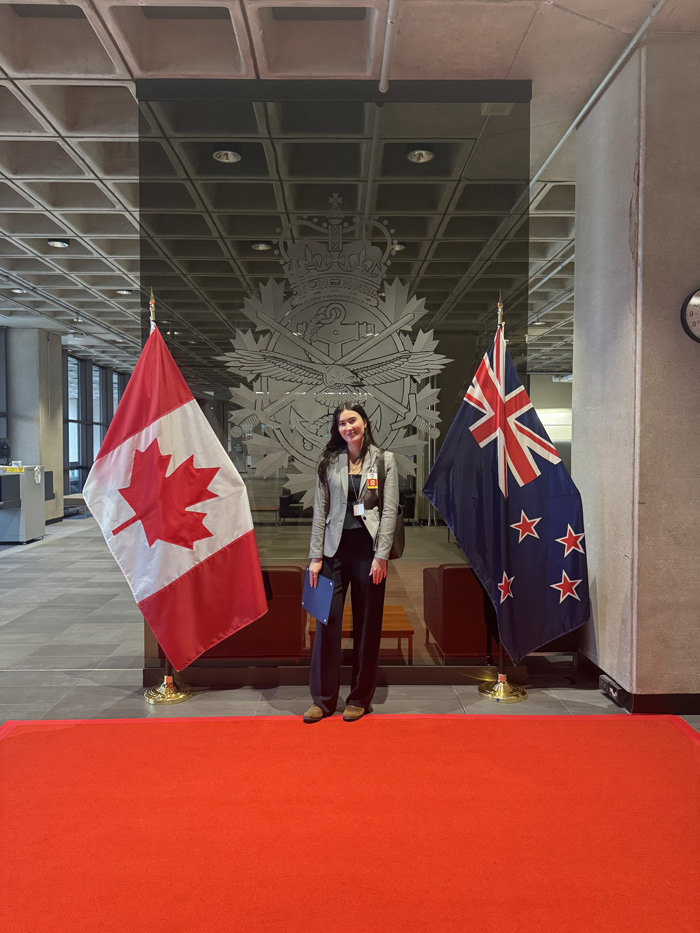
After attending six briefings the previous day and with five more ahead, participating in kinetic exercises with the Canadian Armed Forces—specifically the Cameron Highlanders, Ottawa’s reserve infantry regiment —was a welcome change of pace. We learned firsthand what it means to make decisions about how much ammunition to carry versus how much food, depending on the mission. I saw how, like in my own work supporting refugees, the military is also rooted in service—just expressed differently. They help by showing up every day, risking their lives to protect Canadians and support peacekeeping efforts.
I was especially moved by the engineers’ demonstration, where they explained how they’re often first to clear minefields or breach buildings—putting themselves at the greatest risk to keep others safe. That morning at the drill hall was the first time I ever said, “Thank you for your service” to someone in uniform—I was able to say it with a deeper understanding of what it means.


What affected me on a personal level was how present the Afghanistan War was in every space we entered. Many of the people I met—uniformed and civilian—had served in Afghanistan. Having worked closely with Afghan refugees over the past three years, it felt meaningful to see the other side of that story. It reminded me that those affected by the war in Afghanistan carry grief that takes a different shape in each of us and moves in ways we may not fully understand—making it all the more important to talk openly about our experiences and our grief.
The Future Leaders in Defence Forum wasn’t just a learning opportunity—it was transformative. I came to learn about defense, but I left with new connections, more perspective, and a deeper appreciation for those working to protect Canada, both in and out of uniform.
